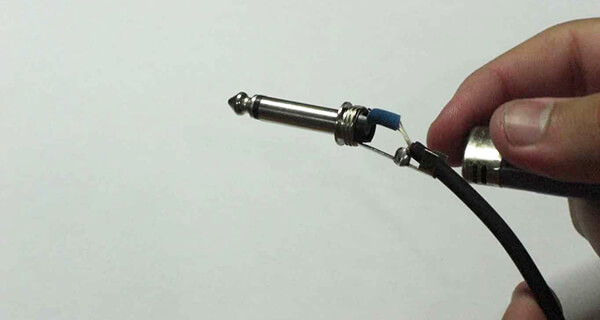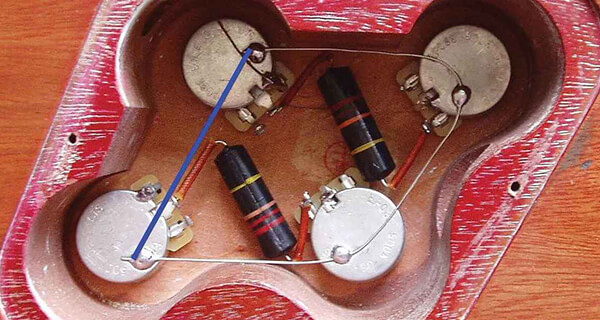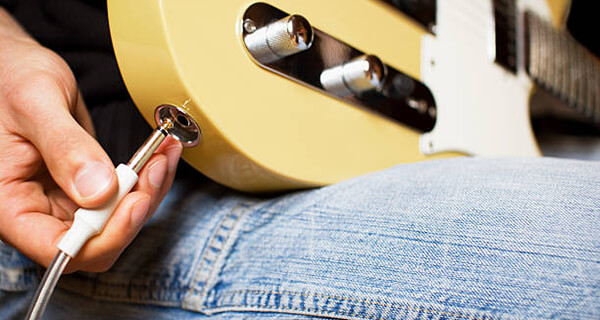Guitar Buzz When Tone Turned Up [5 Effective Ways To Fix]
If you’re a guitarist, you’ve likely encountered the frustrating buzz when turning up your guitar’s tone knob. In this guide, we’ll uncover the causes and solutions, helping you enjoy buzz-free playing and pristine tones. Let’s see the solve this problem if your guitar buzz when tone turned up.

# Table of Contents =>
1. Understanding the Issue –
Before diving into the solutions, it’s essential to understand the problem. The buzzing sound when you turn up your guitar’s tone knob typically results from electrical interference, loose connections, or issues within your guitar’s components. Identifying the root cause is crucial for an effective fix.
2. Common Causes of Guitar Buzz –
a. Grounding Issues: One of the most common reasons for guitar buzz is poor grounding. Grounding ensures that electrical noise is redirected away from your guitar’s signal path. Loose or disconnected grounding wires can lead to unwanted buzz.

b. Faulty Cables: Worn-out or damaged cables can introduce interference and buzzing into your signal chain. Ensure your cables are in good condition.
c. Pickup Problems: Pickup magnets can become demagnetized or unevenly charged over time. This can result in erratic buzzing sounds, especially when the tone knob is turned up.
d. Amp and Pedal Troubles: Sometimes, the issue may not be with your guitar but with your amplifier or pedals. Faulty components in your amp or pedal board can introduce noise into your signal.
3. Effective Ways to Fix: Guitar Buzz When Tone Turned Up –
a) Grounding Issues:
Check Grounding Connections:

Inspect the wiring inside your guitar carefully. Ensure that all grounding wires are securely connected to the bridge, control pots, and output jack. Loose or disconnected grounding wires can be a major source of unwanted buzzing. Use a soldering iron to reattach any loose connections and ensure they are properly grounded.
Shielding:
To further reduce interference, you can shield the inside of your guitar’s electronics cavity. Use copper foil tape or conductive paint to create a protective barrier that prevents external electrical noise from entering your guitar’s signal path. Make sure this shielding is connected to ground for it to be effective.
b) Faulty Cables:
Replace Cables:

If your cables are causing the buzzing, it’s essential to replace them. Invest in high-quality, shielded cables. Quality cables not only reduce interference but also provide better overall signal quality. When choosing cables, consider the length you need, as longer cables may introduce more noise.
Proper Cable Routing:
Take care when routing your cables. Keep them away from power sources, fluorescent lights, and other electronic devices that can induce interference. Use cable clips or straps to secure your cables neatly along your guitar’s body or pedal board. This prevents accidental tugging and minimizes interference.
c) Pickup Problems:
Swap Pickups:

If your pickups are the source of buzzing, you may need to replace them. Choose pickups that match your playing style and desired tone. Ensure they are well-magnetized and correctly installed. Replacing pickups can significantly improve your guitar’s sound quality and reduce unwanted noise.
Balance Pickup Heights:
Experiment with the height of your pickups. Adjusting the pickup heights can help you find a sweet spot where the pickups capture your desired tone without introducing excessive noise. Typically, pickups closer to the strings will produce a stronger signal but can also be more prone to interference, so find the right balance.
d) Amp and Pedal Troubles:
Test with Different Gear:
If you suspect that your amplifier or pedals are causing the buzzing, perform systematic tests. Swap out one piece of equipment at a time to identify the specific component causing the issue. This process of elimination will help pinpoint the problem, whether it’s a faulty cable, pedal, or amplifier.
Maintenance:
Regularly clean and maintain your amplifier and pedal board. Dust and dirt can accumulate inside these components, leading to performance issues and increased noise. Use compressed air to blow out dust, and periodically inspect for loose connections, damaged components, or worn-out tubes in your amplifier. Regular maintenance can extend the lifespan of your gear and keep it sounding its best.
4. Routine Maintenance Tips –
To prevent future buzzing issues, incorporate these maintenance tips into your routine:
Clean Electronics: Use compressed air or contact cleaner to remove dust and debris from your guitar’s electronics.
Tighten Hardware: Periodically check and tighten screws, nuts, and bolts on your guitar and amplifier to ensure a secure connection.
Regular String Changes: Old, corroded strings can introduce noise. Change your strings regularly.
Conclusion:
By understanding the common causes of guitar buzz when tone turned up and implementing the effective solutions provided in this guide, you can ensure that your guitar produces the clean and clear tones you desire. Remember, regular maintenance and attention to detail are key to keeping your instrument sounding its best. Happy playing!
Last Updated on September 28, 2023 by Perry Garner


